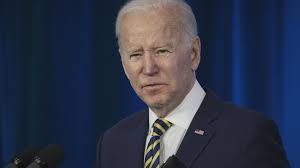Prabowo, the expected president of Indonesia, pledges a “very smooth” handover of power
Jakarta: Prabowo Subianto, the expected president of Indonesia, vowed on Tuesday to carry out incumbent Joko Widodo’s programs and to take the required steps to enhance the nation. He also guaranteed a “very smooth” transition of power later this year.

Speaking at an investment seminar, Prabowo—who, according to unofficial vote counts, won the Feb. 14 presidential election by a wide margin—stated that Indonesia had basic capabilities that required just effective management, but that increasing employment and addressing poverty were also critical.
He expressed his belief that the economy might expand by 8% per year in the next four to five years and that privatizing state-owned businesses and raising tax rates could be achieved by broadening the tax base rather than by raising taxes directly.
Though he expressed dissatisfaction with his nation’s democracy, Prabowo stated in a broad address that Indonesia should be proud of the election, for which the turnout was “not bad.”.
“I can relate to the fact that democracy is really exhausting. He said, “Democracy is very expensive and very messy.”
“There is a great deal of space for development. Let’s avoid having an inferiority complex and believing that we are never good enough for anybody, however.
Thanks to the controversial and covert backing of the wildly popular Jokowi, the president, and the appointment of the incumbent’s son as running partner, Prabowo seems to have won the election handily in his third bid at the presidency.
Jokowi has come under heavy fire for allegedly misusing his power to influence the election and unjustly favoring Prabowo in order to preserve his legacy—criticisms that his backers deny.
Indonesia, according to Defense Minister Prabowo, aspires to be food self-sufficient, a goal he believes can be accomplished rapidly, with food exports possible in as little as four years.
Additionally, he said that Indonesia was welcoming to foreign investment and had upheld sound fiscal policies, emphasizing that prior governments’ obligations had always been honored and that current administrations had not defaulted on them.







